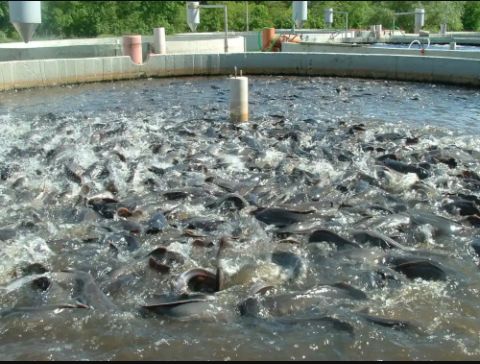The sector of food production with the fastest global growth is fish farming. Fish is a low-cholesterol, flavorful, and healthful food that is high in protein. Therefore, there is a huge market for fish and fish-related products all over the world, Entrepreneurng report.
The economy heavily depends on fish farming. It provides a huge number of career opportunities in operations and ancillary services. This line of work necessitates constant, meticulous monitoring, expertise, and specialized knowledge.
People with a variety of jobs and professions can launch this business. You can borrow money from the bank or find investors to help you raise money.
These six steps, which are listed below, can help you start a fish farming business.
1. choose your method of fish farming
The kind of fish you’re planning to raise is the first thing you should decide when starting a fish farm e.g catfish, tilapia, sardine, and many others. The success of the fish farming industry is significantly influenced by the choice of fish species. The choice ought to be made in light of factors like resource availability, market demand, managerial outlook, and maintenance considerations.
2. Recognize the target market
Before beginning a fish farming firm, it is crucial to conduct a feasibility analysis and business planning. Before launching a fish farming firm, we should also conduct a thorough market analysis. Consider learning about the local market’s demand. If you plan to start aquaculture for export, get in touch with the fish processing facilities first. Create a different marketing plan. Depending on the type of fish you are raising, different consumer types will exist.
Read Also: Snail Rearing: Can An Entrepreneur Start With Low Capital?
3. Discover the abilities needed for fish farming
When starting a fish farming firm, it’s vital to have basic abilities. Certain farms are administered by the government and offer training. You can enroll in those courses to gain knowledge and abilities. Working at a prosperous fish farm is another opportunity to pick up new skills. You will learn how to regulate water quality, market products, feed animals, and process food.
4. Get the required Capital
Investing in money comes in two forms in the fish farming industry. It is comprised of operating and fixed capital expenses. Ponds for crafting, land and buildings, plumbing setups, vehicles, oxygen meters, various tanks, etc. are all included in the fixed capital cost. The price of fingerlings or fish eggs, electricity, fish feed, labor, fuel, chemicals, insurance, tax, telephone, transportation, and other upkeep costs are all included in operating costs.
Before starting your firm, you need to perform a thorough cost analysis of your fish farming operation. The calculations will change depending on the species of fish you decide to farm, the overall area of the land, and the intended production. Depending on the size and scope of the project you are commencing, costs will change.
5. Choose a suitable place for fish farming
While choosing land, there are a few things to keep in mind. It contains the size, kind, and water supply of the soil. Choose a location with enough space. Also, take into account your long-term goals to avoid being constrained by size when growing your company.
The quantity and quality of fish you obtain are directly impacted by the soil quality. Therefore pick a location with good soil. You need to test the soil to make sure that it contains at least 20% clay. You should also look at the relative level of the space.
It’s crucial to make sure that this area won’t flood quickly. By doing this, you can stop soiled water from getting into the bond. There should be fewer rocks on the land. The most crucial element in fish farming is the constant flow of water. You need access to the municipal water source if you want to create a fish farm in a city or town. Choose a location close to the stream, lake, or river if you wish to start in a village area.
6. Get the required equipment
Equipment like Pumps, Fish weighers, devices for testing water, Seine/net reels, ponds or fish tanks, Aeration mechanisms, graders of fish, and many others.
Conclusion
One of the main issues in the modern digital environment is unemployment. Fish farming will provide a lot of jobs. It will present employment prospects for farmers, sellers, and transporters. The global fish farming industry has benefited from the rising demand for fish as food. Also, a lot of individuals think that eating fish has several advantages. As a result, the seafood industry always has a steady and reliable market.


